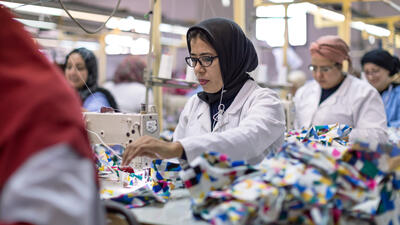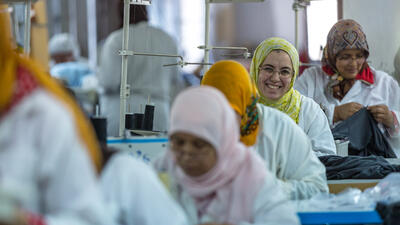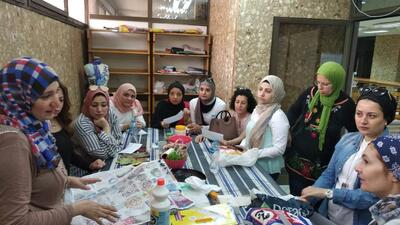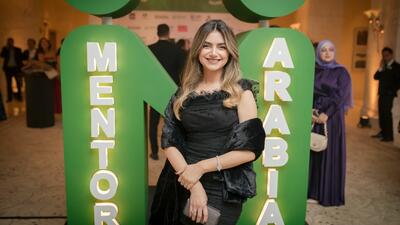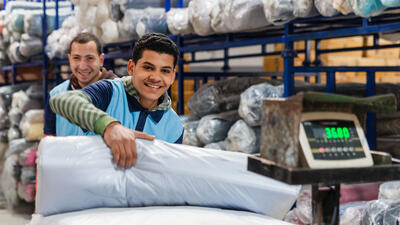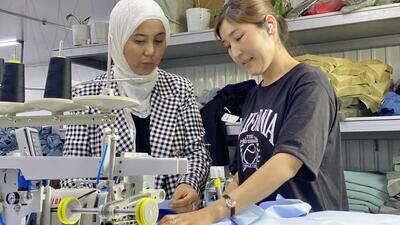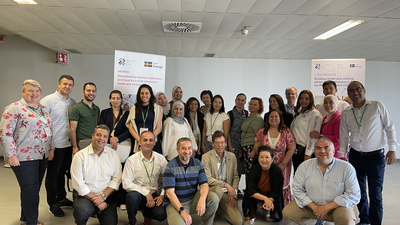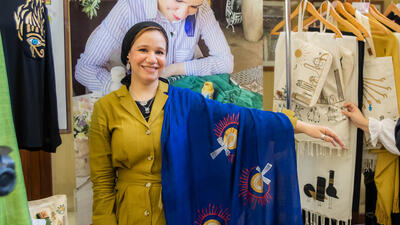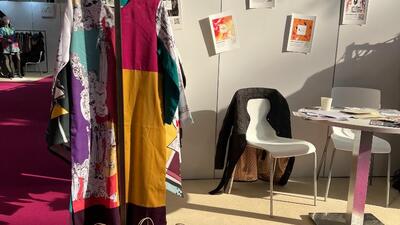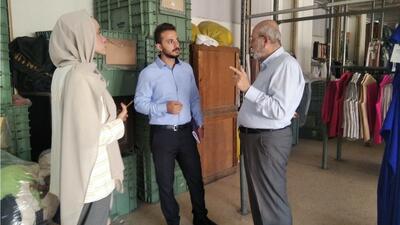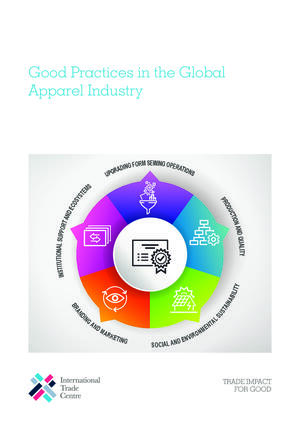
ITC's MENATEX project in Jordan helps companies implement resource efficiency and circular production techniques
With years of experience in the national textile and clothing market in Jordan, She Chocolate is a small company from Amman, mainly focused on local sales, exporting only 10% of its production. However, a year and a half after the launch of the International Trade Centre (ITC)’s Middle East and North Africa Textile and Clothing Programme (MENATEX), the company’s prospects, environmental standards and digital marketing have changed completely.
A producer of women’s modern and traditional apparels, Sinan Al-Omari, owner of She Chocolate, explains that before the project, his company was not aware of environmental standards: “Complying to environmental standards was not on our minds, we lacked the understanding of its importance to enhance our competitiveness in the global markets.” He emphasizes the benefits of the project’s training and coaching sessions. “Changing our mindset to a more environmentally responsible production was the main impact of the MENATEX project,” concludes Al-Omari.
Eman Beseiso, project manager at ITC, explains that the MENATEX project was tailored to the needs of the Jordanian apparel sector, especially after the COVID-19 outbreak in which the industry became one of the most affected by the pandemic: “We delivered a comprehensive package of activities and interventions in 2020, focusing on priority areas identified in a survey on the impact of COVID-19 on the beneficiary Micro, Small and Medium-sized Enterprises (MSMEs),” says Beseiso.
The recommended actions led MENATEX to focus on providing technical assistance and supporting companies in digital marketing, product development and design, resource efficiency and circular production, digitization and technology for improving competitiveness, and lean management, among other topics, as a way to support recovery from the COVID-19 crisis.
“The resource efficiency and circular production coaching sessions directly impacted our monthly running costs with a five to seven percentage reduction after replacing the existing lighting with new LED lighting,” comments Al-Omari. In addition, She Chocolate is replacing the current air-conditioning system with a power-saving system and establishing a solar electrical system. “For the second phase, we will be able to cover the electricity needs for the main factory in Marka – Amman and our 17 branches all over Jordan. The expected saving will be 80-90% of our bill, around $500,000 per year.”
The MENATEX project in Jordan started harvesting the results of its work in a short timeframe. The technical trainings and coachings helped MSMEs to reduce expenses, while connections with new markets and buyers. “We saw an impressive result from our beneficiary companies. They improved factory operations, achieved efficiency and cost savings of $148,000,” says ITC’s Project Manager. Beseiso also adds that “All 21 beneficiary MSMEs learned how to use digital channels to connect with international buyers and created accounts in social media channels. They also started to upgrade their products, and some have been helped with access to finance.”
Sinan Al-Omari has a team of four, responsible for the company’s social media presence and online marketing. After the training on digital marketing provided by the project, they adapted their communications and marketing strategy to achieve even better results. “The digital marketing training programme was very useful to enhance our performance and build up the capacity and skills of our employees on digital marketing. The training was a lifesaver during the peak of the pandemic.”
“We always had a website and a presence on social media as promotional channels and observed that 90% of our customers visit our showrooms after exploring our collections online. After the pandemic, online channels switched to be our main sales points. We applied the campaign techniques and strategies learned in the digital marketing training to target the right customers and focus on neighbouring countries, like the gulf area and Iraq,” explains Al-Omari.
“I would like to thank the government of Sweden as the donors of this project and the ITC for its careful implementation. Projects such as MENATEX provide us with a unique experience and support to growth in the global textile and clothing sector,” concludes the owner of She Chocolate.
The Middle East and North Africa Textile and Clothing Programme (MENATEX) project ‘Improving the international competitiveness of the textile and clothing sector in Jordan’ is part of the regional MENATEX programme covering four countries in the MENA region: Egypt, Jordan, Morocco, and Tunisia. The International Trade Centre, with support from the Swedish government, implements the programme, which will last until the end of 2022.




